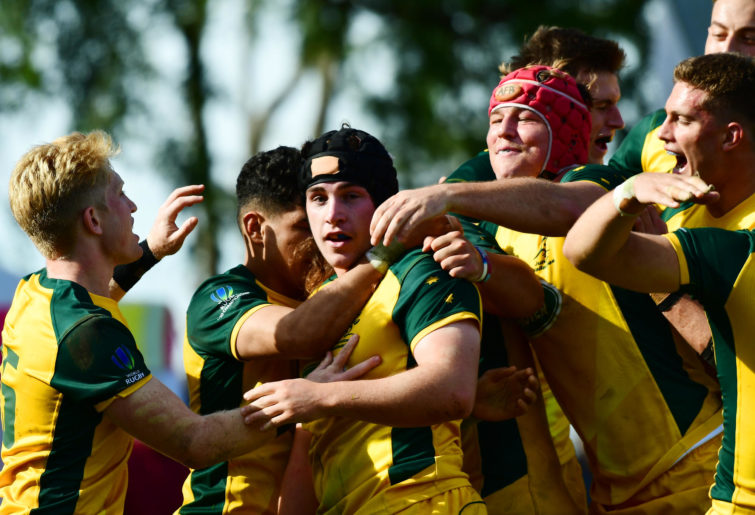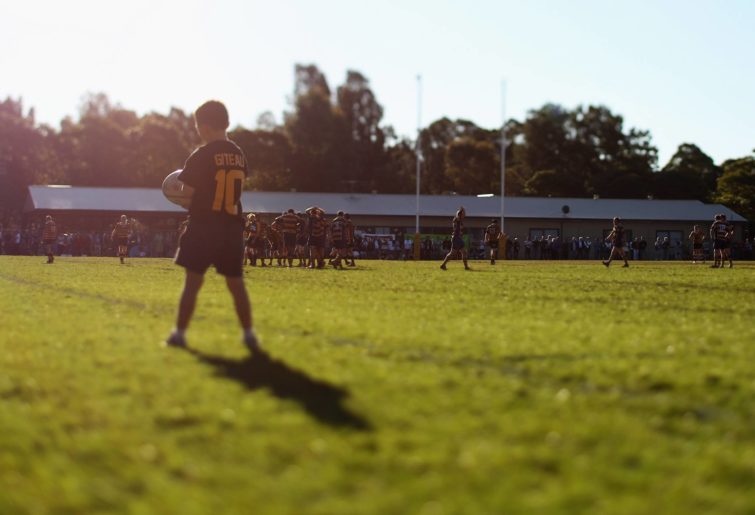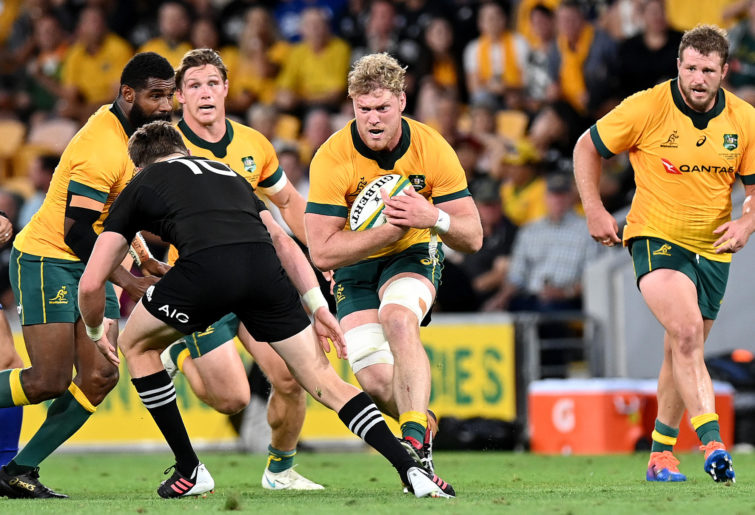The Roar Rugby Project aims to document the challenges and opportunities facing rugby at all levels across the nation, drawing on Roarers’ experience as players, officials, and supporters to find new solutions for the problems that have dogged the game over the last twenty-five years.
1. Introductory launch – an overview of the challenges facing the game
2. Financing rugby- revenue challenges all community and professional rugby
3. Debt, Windfalls, Lessons Learned, and Other Myths – Refinancing RA losses
4. Governance – The need for constitutional change
5. Supporting community rugby
6. Tiers or Tears – competition structures for Professional Rugby
7. Losing money made easy – Professional Rugby must be profitable
8. A Story of Neglect – There is no game without a Referee
9. Almost a Wrap
10. Coaching and Development – Another story of neglect?
It was a mental and physical struggle to produce last week’s article and I tested positive to Covid on Monday. I have been fortunate to avoid any bad side-effects but another article this week, on another subject I don’t know much about, is a step too far.
I just couldn’t spend the time I wanted talking with referees last week, and the same applies regarding coaching and development. I will return to it in a few weeks’ time and complete what I set out to do.
In the meantime, I am going to wrap up what has been done to date and pull together a plan based on what I have learned in the last eight weeks. The process of writing, thinking, and corresponding, has forced me to delve deeper in the detail, but has greatly clarified my view of rugby and my relationship with it.
The Roar Rugby Project
I started with several objectives:
1. Stopping the frantic non-stop whirl of my thinking about the dysfunction of rugby 24/7
2. Figuring what I want out of rugby personally
3. Formulating a plan for action, the things I think need to be done to turn rugby around in Australia
I could not have asked for more support from the readers for this project. In large part, many readers have gone to a lot of personal effort to constructively engage or encourage, it certainly helped shape, and sometimes reshape, my ideas. My thanks to Tony Harper and Bob Wilson for their practical and moral support.
Would it have got off the ground without Ken Catchpole’s Other Leg? I hesitate to give too much credit to a winger, but he assures me he never dropped the ball when not under pressure. I am looking forward to a beer with him the next few weeks. We hit it off in our first phone call, that’s rugby.
Luckily for me, ‘madkiwi’ has been computer bound with a soft tissue injury (no, I did not ask) and been a constant support and cheer leader.
I believe robust conversation is required to come up with any worthwhile solution. Robust certainly describes ‘scrum’, but I hope you felt it was worthwhile. To ‘World in Union’ who really pushed me over several weeks to justify my position and persuaded me to adopt his. Sort of. Ditto ‘Andy S’ although we continue to only agree 80% of the way.
I have changed my mind or perspective on several issues, some of which had never occurred to me before. In other areas, my beliefs have been challenged, which has served to sharpen my thoughts and suggested actions for the future.
Rugby Australia
I have not improved my opinion of the board and management of Rugby Australia. If anything, this series of articles has only deepened my despair at the management of our game, both in Australia and globally, over the last hundred years.
Despite all the changes, especially in communication and transport, increasing the reach of the game across the globe, the culture around administration has not changed at all. Are they really that incompetent, or do they just not care?
The essence of rugby
Probably my biggest upended belief is that rugby is an inclusive game. This is not a commentary on class, those who believe they are above others, and those who believe the game revolves around that, are irrelevant. However, while the rugby community have a deep understanding of rugby, they will tend to look inward towards it.
Rugby is inclusive to the extent that people who want to walk inside the tent will be embraced, and a place found for them in the game, irrespective of gender, shape, or size. If you are not a player there are heaps of other roles to fill. On the other hand, we tend to be OK with leaving everyone else outside the tent.
The complexity of the game is in its simplicity, its defining principle being the perpetual contest for possession. Rugby is mostly played with the express intention of hanging on to the ball, stealing the ball, or stopping the opposition using the ball. The variables of how this happens in the game are unlimited, and it is the referee’s job to try and keep it fair.
If you have played the game, or watched it closely over time, then you get the hang of a lot of it. I played hooker mostly, had to fill in as a prop very occasionally, and played on the side of the scrum a couple of times. I really have very little idea about any position other than hooker.
Add in the intricacy of backline play, modern tactics and an endless variety of game plans, and I probably understand 5% of the game in front of me. We need to stop trying to explain 100% of the game to someone who understands 2%. I wonder if an extra 1% will be sufficient to win their interest.

The Junior Wallabies (Photo by Amilcar Orfali/Getty Images)
The lessons of club rugby
When writing the second article it dawned on me that the challenges for successfully operating a successful community rugby club are not much different to operating a successful professional team. The key to sustainable success is getting people to attend, and enjoy, rugby matches.
For the local club it provides additional game day takings, and the opportunity to raise money and attract members. For super rugby teams it is no different. Many first attendees will be the guests of somebody already in the rugby community. That is an opportunity to encourage them to attend again and perhaps build sufficient interest to become a member or purchase a TV subscription.
It is a week-by-week effort, not a TV negotiation every four years.
The second lesson revolves around culture, governance, and thrift. Community rugby has prospered for over a hundred years, while professional rugby has failed for twenty-five. Rugby Australia needs to change its thinking; the answers are not in its boardrooms.
Bringing them back to rugby
The immediate financial problems of Rugby Australia are directly correlated with the massive falls in match attendance and TV viewing numbers over the last fifteen years.
My contention was that effort needed to be put into winning back disaffected rugby supporters, rather than chasing new audiences. Rugby Australia seem to have no comprehension of what might attract someone from outside the rugby community to attend a game or watch one on TV.
With my new observations above, I think it is worth making very deliberate plans about winning new customers. However, it will require transparency, discipline in execution, monitoring outcomes and the humility to adapt when failing. To date, these are invisible attributes of that organisation.
The neglect of community rugby concerns me most. Rugby Australia seems blind to the alienation of the rugby community, who have stopped supporting professional rugby through membership, attendance, and TV subscriptions. There is no recognition that limiting financial and development resources to the community will gradually constrict the flow of appropriately skilled players.
It’s legal obligations to protect and grow community rugby are ignored, mainly on the premise that there is no money. It alarms me that Rugby Australia only sees it’s obligation in terms of financial funding, a bit like throwing the peasants some cake.
A small investment and commitment to understanding the challenges of running a community rugby club, and then supporting the operation of Australia’s 950 clubs, would pay a significant and ongoing dividend.
How did it come to that?
What do you do when your team is grimly defending under the goalposts, and you find yourself lying on the ball? Would your answer be different if you knew the referee was not watching?
Rugby Australia’s constitution does not provide for any accountability for failure. Directors can close off visibility or discussion at any time. When directors must be replaced, they have almost total control over who is appointed, and a slightly greater veto over someone they do not want.
The second issue is that the board and management have not put in place any structures to ensure that community rugby is protected and fostered. They delegate responsibility to others who cannot do it either, then wash their hands of us.
Whether as a separate union, or as a defined and accountable part of Rugby Australia, this must change to give rugby the chance of a successful future.

(Photo by Mark Kolbe/Getty Images)
The downside of private equity
I am certainly wary of the significant risks PE will bring to Australian rugby. If Rugby Australia do not successfully reconnect with the rugby community, or attract new customers, then it must be doomed.
The minimum we should expect at the time of the announcement of private equity investment is a clear and transparent long-term plan for the whole game. In addition, Rugby Australia must demonstrate how it will be held to account for failing.
Long-term failure will require community rugby to constitute its own union to pick up the pieces and move forward.
We must understand the extent of Rugby Australia’s obligation to community rugby. Rugby Australia owns all the rugby community’s assets, in return for which it promised to protect and grow Australian rugby. It has failed dismally, is barely solvent, and its solution is to sell those assets to another company which has no obligations to Australian rugby.
A new world
2024 will be a watershed in global professional rugby. Recent announcements suggest World Rugby is looking to establish a global competition. This would support private equity investors who receive a percentage of revenue, although it will likely impact on member nations differently depending on financial and internal community rugby issues.
I would expect it be a short-term revenue benefit to Australia. In the long run a global competition cannot be in our interests because the financial benefits and logistics will most likely disproportionately flow to the northern unions. Australia and New Zealand are likely to be equal partners but deliver greater value to the northern nations.
Private equity investment must be used by Rugby Australia to rethink professional rugby, not squeeze the last drops of blood out of the same stones. Is there greater opportunity in the Pacific hemisphere where the real rugby growth engines are located?
Starting with a clean sheet an elite competition should be established in the region, structured to avoid club versus country issues. The international calendar needs to be built around the needs of the Pacific while remaining accessible to Europe and South Africa.
Australia and New Zealand should initially command a disproportionate share of the revenues, but even if that were to decline over time, it should be a smaller slice of a fast-growing pie.
Player safety
One of the pleasures of the last two months has been the opportunity for many long discussions with rugby friends, and other who have contacted me.
One conversation certainly made me think. Topo is a determined man who is frustrated about the slow progress being made by World Rugby in preventing unnecessary brain injury. Like many, I have been concerned, but not alarmed. There is an inherent risk in the sport and surely it will take time to get the balance right?
My own concerns are that we probably have not got 100% agreement across the sport at the level of urgency required to get tackle heights down, but more importantly do not seem to be even remotely interested in understanding how tacklers get in a position to suffer around half of all head injuries.
Topo sat there and listed off all the benefits he believes he got from rugby, and asked me to add some, which I did. He then asked how it was then possible to add “risk of permanent brain injury” to that list. In my opinion it’s not.
There needs to be 100% commitment from rugby administrations in the top tier countries to minimising the risk, without unnecessarily diffusing the physical and mental challenges of the game.
I don’t see that level of commitment, and World Rugby’s recent moves to delegate the making of rules in the nonprofessional game to national unions is a step backward, depriving most member countries of the resources to tackle this issue.

(Photo by Bradley Kanaris/Getty Images)
The unloved rugby lover
Refereeing was a late addition to the series following the Welsh test, largely driven by my perception that administrations are basically absent in investing in the quality of officiating around the world.
Like everything else contentious or hard work, World Rugby has been content to sit and watch as we start to chip away at the respect for referees, a necessary foundation for the conduct of the game in our communities.
In the same way there is no doubt we all need to address our own attitudes about our conduct towards referees and opposition teams. Returning to Topo’s list about the wonderful things rugby has done for our own personal character and development.
Where does abusing referees and players from the safety of a sideline rank in your list of the things that are good about rugby, and best describe your character? None of us have lived in glass houses, and I wouldn’t suggest any of us build one either, but it is time we all at least think before we open our mouth. Or even shortly after.
Refereeing is a massively underestimated rugby challenge. I’m hoping that ‘jcmasher’ will get around to writing his long-promised articles, and that other referees think about how they contribute on the Roar.
I have suggested many times that professional players be required to hold a current ticket and be using it at least a couple of times a year. While writing this summation I am adding every serious rugby lover to that list. It will increase their enjoyment of the game, and maybe find an opportunity to help introduce it to others.
I have added it to my list, although as I have done with rowing coaching, I will restrict my expertise to beginners, they won’t understand my limitations, and I won’t hurt their progress.
Similarly, I would be very interested if anyone else learned much in the last couple of months.
































































































